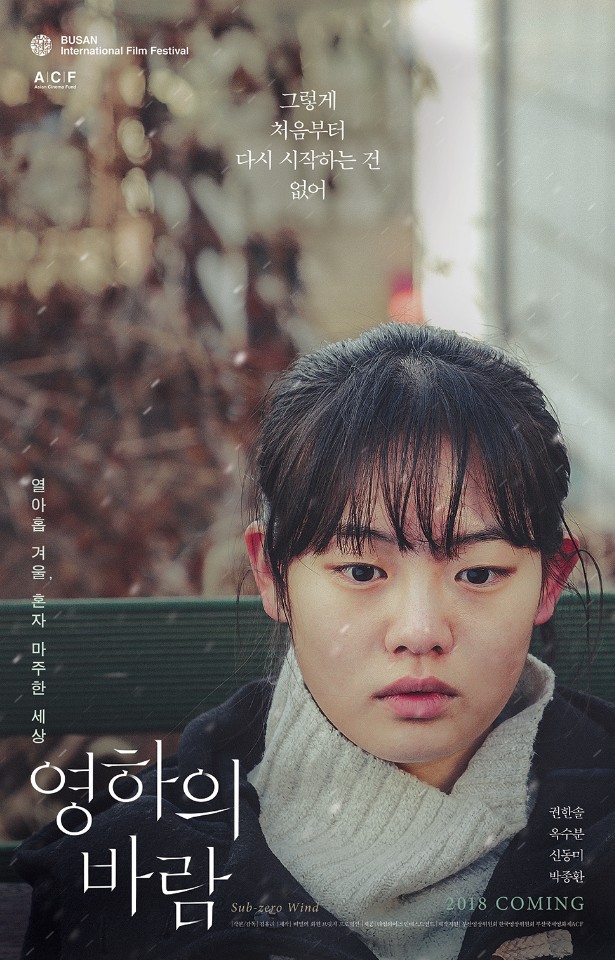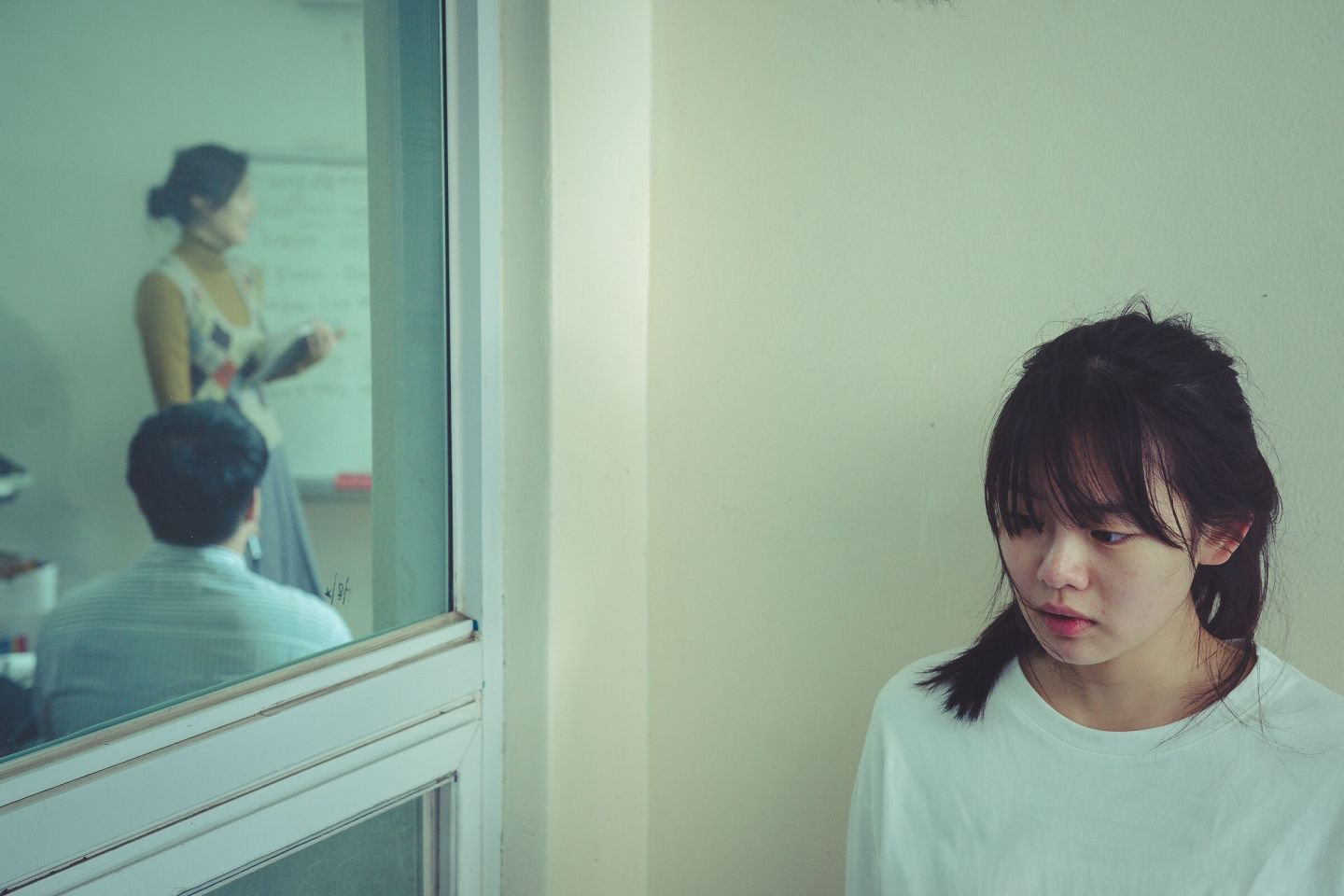 “Life is something you have to get through alone” the mother of the heroine of Kim Yu-ri’s debut Sub-Zero Wind (영하의 바람, yeonghaui balam) coldly claims. In South Korean society, few things are more important than family bonds but when familial connection becomes weaponised it leaves the vulnerable out in the cold. Badly let down by bad luck and irresponsible parenting, Kim’s heroines have only each other to rely on but find even their unbreakable bond strained by the self-centred, unfair, unequal and hypocritical world in which they live.
“Life is something you have to get through alone” the mother of the heroine of Kim Yu-ri’s debut Sub-Zero Wind (영하의 바람, yeonghaui balam) coldly claims. In South Korean society, few things are more important than family bonds but when familial connection becomes weaponised it leaves the vulnerable out in the cold. Badly let down by bad luck and irresponsible parenting, Kim’s heroines have only each other to rely on but find even their unbreakable bond strained by the self-centred, unfair, unequal and hypocritical world in which they live.
Kim follows the girls over seven years beginning with the 10-year-old Young-ha’s traumatic introduction to her step-father (Park Jong -hwan). Young-ha’s mother Eun-suk (Shin Dong-mi), big in the Church, has divorced her dad and now that she’s going to have a new “housemate” has decided that Young-ha should go and live with him. With everything packed into a moving van including her bed, Eun-suk sends her off with the removal man and a cheerful goodbye as if she were seeing off a guest who’s outstayed their welcome. Unfortunately, Young-ha’s dad has done a moonlight flit and so the removal man has no option but to take her back home, only her mother has gone out to celebrate and isn’t answering her phone. Eventually Young-ha is abandoned on the side of the road along with all her possessions, waiting for Eun-suk to come home and sort all of this out.
Some years later, Young-ha appears to have integrated fairly well into her new family, a large portrait of which hangs above their sofa in the elegantly decorated apartment. In fact, despite her original dislike of him, Young-ha seems much closer to her step-father whom she calls “dad” than to her frosty mother. Meanwhile, her best friend and cousin Mi-jin is having a tough time. Both her parents have died, and Eun-suk was supposed to be looking after her but has left her to live with her elderly grandmother and is secretly embezzling her parents’ life insurance payments to put towards her religious education in the hope of founding a church of her own. For this reason, she is terrified that Mi-jin’s grandmother will die and her other relatives will find out about the stolen money.
The truth is the Eun-suk is one of those people obsessed with the church rather than its teachings. Kim opens the film during a sermon in praise of love throughout which Young-ha has her eyes wide open, staring at her mother and her new boyfriend in the knowledge she is soon to be ejected from her mother’s new life. Despite going on about leading people to God and practicing Christian virtues, Eun-suk is often judgemental and extremely self-centred. All she cares about is being a member of the organisation and increasing her status with in it though she has obviously not kept to its teachings in that she has divorced her first husband and is now living with a man she is not not married to who is actually still married to someone else. All of this will, if it is discovered, quite obviously prevent her from becoming a minister but Eun-suk remains undeterred.
Meanwhile, she emotionally neglects her daughter and is sometimes jealous of her close relationship with her step-father. Truth be told, there is something a little inappropriate in how close they remain as Young-ha transitions into adolescence. One could assume her step-father has over invested in his new family because he misses the daughter he left behind, or that father and daughter have bonded through each being pushed out by Eun-suk’s cold hearted pursuit of her goal, but the fact remains that the family unit is quietly disintegrating under the pressure of her emotional absence and eventual slide into the hypocritical selfishness which sees her keen to adopt her boyfriend’s daughter for appearance’s sake or because she fears his leaving her while keeping her sister’s daughter Mi-jin at a distance.
When it becomes impossible for Young-ha to continue living in the family home, she turns once again to Mi-jin and the two girls try to make a go of things in Busan as soon-to-be high school grads. The main problem that they face is not so much finding employment as a place to live. Getting a room requires a running start – key money, deposit, rent payable in advance. The girls have savings, but not quite enough for starting a new life on the minimum wage when you don’t have anywhere to go back to or people you can ask for help. Eun-suk is always telling her daughter that they can “start over”, but there are times when you can’t or at least not in the same way. When the girls are cut loose, abandoned finally and completely, it may actually be a kind of relief. “Starting over” released from a destructive cycle of familial disappointment may be a real possibility but all they are left with is each other in the cold winds of an unforgiving city as they try to find a way to live as independent young women with no firm ground on which to take hold.
Sub-Zero Wind screens on 6th July as part of the 2019 New York Asian Film Festival.
